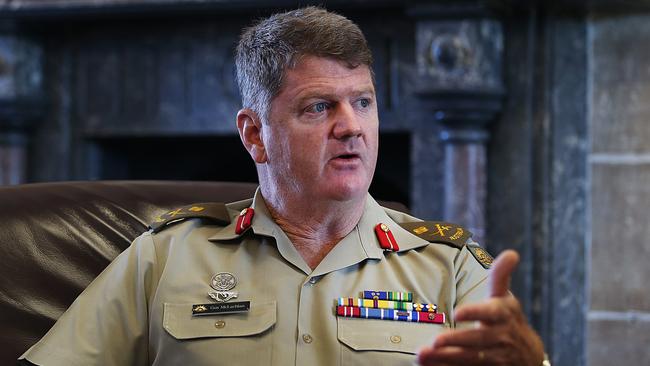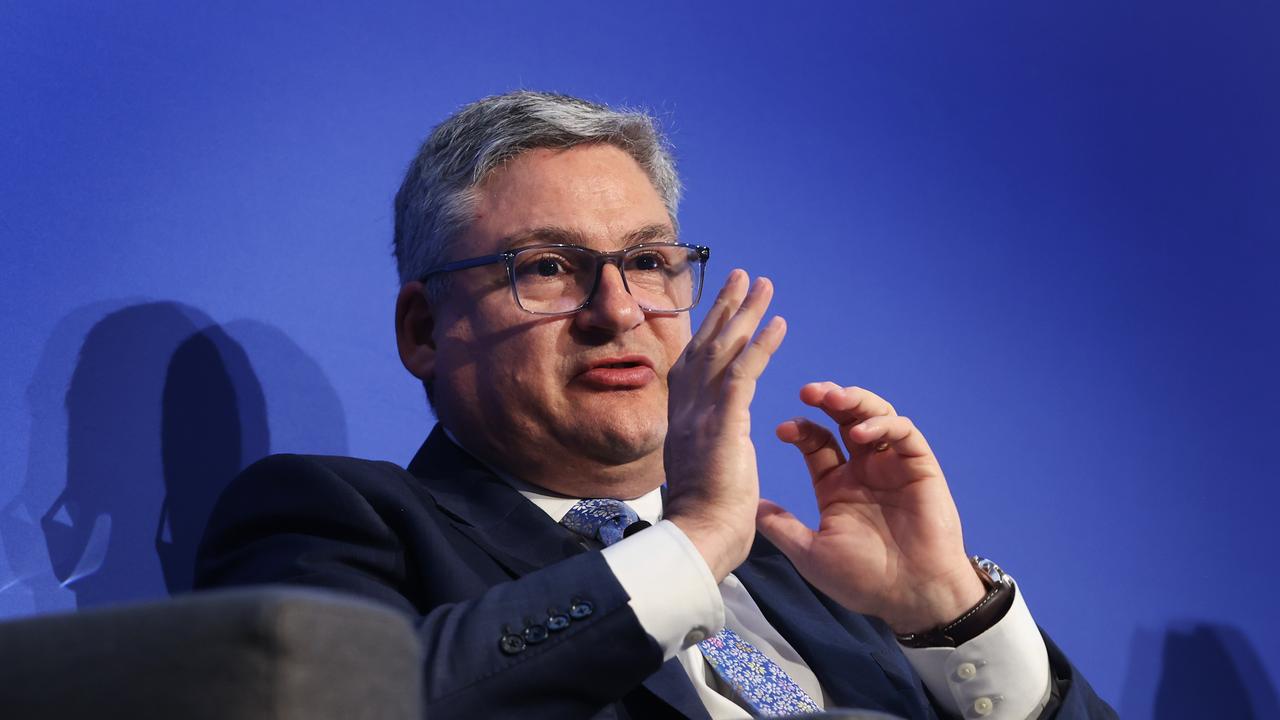Why the AUKUS partnership with the US and Britain is good for business
2021 is the right year for AUKUS, the new defence and intelligence partnership between Australia the UK and the US.

2021 is the right year for AUKUS, the new defence and intelligence partnership between Australia the UK and the US. It is 70th anniversary of the Alliance, that underpins our US relationship and it is the year Britain will sign its first free trade agreement after Brexit, with Australia.
“We are entering a golden era between Australia and the UK and connecting with the US, it’s like three siblings sitting around the table getting together and figuring out how they are going to take on the world,” said David McCredie CEO of the Australian British Chamber of Commerce.
“The number of defence pieces, things around space, we have lined up, connectivity we are looking at now. The future is very bright in terms of what that means of investment and what that will mean for trade,” he said.
Retired Major General Gus McLachlan, now a strategic defence adviser, spent years working closely with US defence force and in the Pentagon. He cites two reasons for the decision to ditch the French in favour of the AUKUS nuclear-powered submarine. First the Naval sub was never fit for purpose.
“It resolves the question no one was willing to be open about. We were trying to build a sub that had to operate over ranges that nobody else in the world tries to achieve with conventionally powered subs,” he said.
Submarines are a capability closely watched by China for both defence and commercial reasons. But diesel subs starting in Perth with a required range to the South China Sea must surface and refuel, losing stealth. Only nuclear has the reach. Australia baulked at nuclear propulsion when Naval was commissioned. The irony today is that the French had to remove the nuclear power plant in the sub and replace it with a diesel engine.
The point is that France isn’t in the club. This is McLachlan’s second reason for the decision. It is about Five Eyes, the intelligence group of Australia, the UK, the US, Canada and New Zealand and the imperative for truly interoperable capability.
“This isn’t commentary on French capability,” he said. “It is the reality of the power of the Five Eyes community. The system entails not just intelligence sharing, it is a technical system.
“We have very much bought into that technical system with our F35 joint strike fighters, our Wedgetail early warning and control systems.”
The interoperability Five Eyes demands between the F35 joint strike fighter and other sea and air assets means technology and people in defence now work to a level of trust that creates unmatched capability worldwide.
For some time, that level of interoperability has been driving decisions. “We were going to take the French command and control system out of the French sub and place the American one in there,” said McLachlan.
McCredie says the subs deal takes the UK-Australia defence relationship to a new level, especially given the big contractors to the sector already operate in Australia. “BAE are probably the largest defence prime in Australia, they are building our frigates, doing the joint strike fighter. They do the Hawk lead-in fighter and the JORN over the horizon radar.
Defence and security is not part of free trade agreements, but McCredie expects the UK-Australia FTA to support logistics behind the new project and drive skilled worker mobility.
Britain may get something else from the subs build. Its own nuclear deterrent is expensive and may be helped by economies of scale.
China, Australia’s largest trading partner, has attacked the new deal as an extremely irresponsible threat to regional stability.
Yet while it has long been the case that Australia looks to China for trade, it also looks to the US for security and to both the US and the UK as its two largest investors. The US has a $1.8 trillion cross-investment with Australia and the UK $1.3 trillion. As of Thursday, security too is a three way bet.




